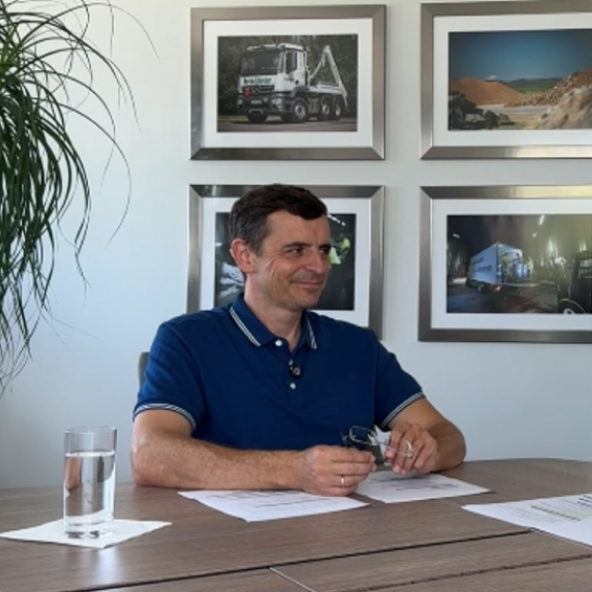
Brantner CEO, Josef Scheidl, and qibri CEO, Micheal Siegmund discusses importance of know-how management in democratizing information and decision-making across the organization.
Interview Snapshot:
In this video (in German), Brantner CEO Josef Scheidl and qibri CEO Michael Siegmund discuss the importance of know-how management to democratize information access across the organization and achieve operational excellence. We’ve given our native German speakers the opportunity to express themselves in the comfort of their mother tongue, allowing for a more authentic and fluid discussion. But of course, we need to make sure our entire audience can benefit from the insights shared in this conversation, so we’ve prepared an English summary.
The two CEOs focus on defining ‘know-how,’ its role in business success, and the challenges of managing it effectively. The conversation highlights Brantner’s experience in implementing a know-how management platform (qibri) to overcome the difficulties posed by rapid growth, silos, and the need for standardization across operations. The discussion also touches on the role of know-how in promoting continuous improvement, increasing organizational flexibility, and achieving operational excellence.
Intro:
Our conversation opens with Josef Scheidl reflecting on his six-year tenure as CEO of Brantner and emphasizing the critical role of know-how in a rapidly growing business. He highlights the challenge of not only preserving but also expanding organizational knowledge as the company ventures into new business sectors
What is “Know-How”?
The discussion soon shifts to defining “know-how.” Josef explains that it’s not just about specialized knowledge but also understanding and bringing visibility into company processes. Given Brantner’s decentralized structure, processes varied across locations, leading to a need for a unified knowledge system.
What’s the significance of know-how in a fast-changing world?
In this section, the CEOs discuss why know-how is essential for business success, especially in today’s fast-changing world. Josef mentions that without capturing existing application knowledge, companies risk falling behind competitors. He shares how Brantner lacked a formalized strategy process and a common approach to documenting procedures which made it difficult to standardize operations.
What are the biggest challenges in know-how management?
Here, the two CEOs dive into challenges of managing know-how, such as ensuring that information is clear and accessible. Josef explains how siloed know-how led to inefficiencies, as different locations followed their own processes. He emphasizes the importance of having a single system where all of the employees can access and update procedures easily.
The Role of Know-how in Organizational Transformation:
Josef highlights how Brantner’s using qibri helped transition the company from a hierarchical structure to one where employees are more involved in decision-making, by democratizing know-how. He also notes that the system has supported compliance efforts and the company’s transformation into a more agile and employee-driven organization.
What were the biggest issues with know-how before qibri?
One of the key challenges Brantner faced was the effective use of internal know-how and resources. The company explored multiple strategies to enhance information sharing, including the adoption of new digital platforms and alternative methods for organizing internal knowledge. Despite their best efforts, Brantner found it difficult to maintain consistency and structure over time. As a result, they found themselves reverting to previous methods.
What changed in Brantner after qibri’s introduction?
Josef remembers the initial resistance to implementing qibri, a common challenge in change management. However, the system quickly proved valuable for updating outdated documents and ensuring compliance, helping Brantner streamline audits, track policy updates, and integrate training systems, making ISO certifications and other processes faster and more effective.
Advice to the other CEOs
Josef concludes by advising other CEOs to invest in a centralized knowledge system early. He stresses that know-how management is often the first thing sacrificed in stressful times but is crucial.
